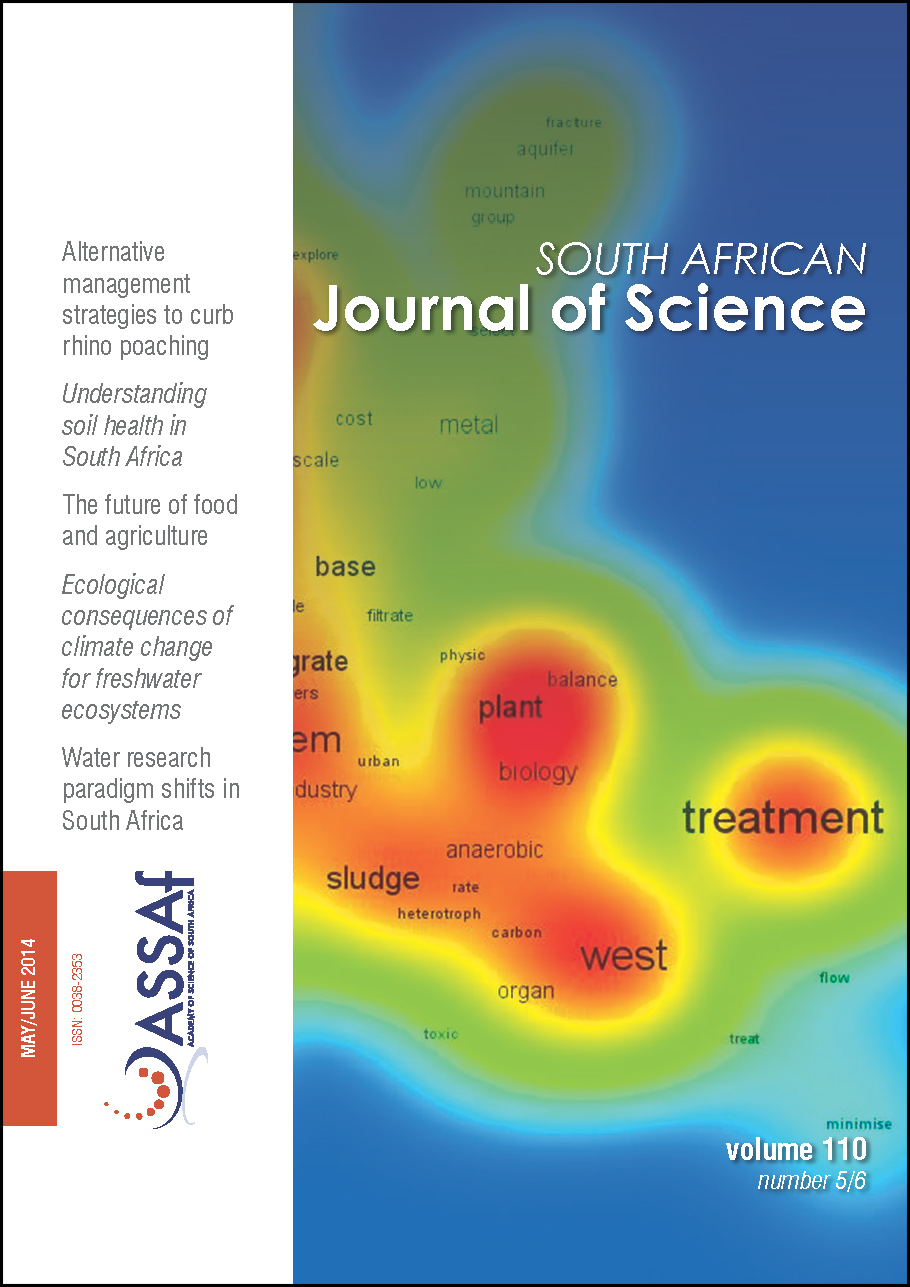Management strategies to curb rhino poaching: Alternative options using a cost–benefit approach
DOI:
https://doi.org/10.1590/sajs.2014/20120055Keywords:
anti-poaching, awareness, CITES, demand–supply, rhino horn tradeAbstract
The combination of increasing demand and high black market prices for rhino horn in Asian markets has fueled an escalation in rhino poaching since 2007, particularly in South Africa. This situation has in turn resulted in greatly increased rhino protection costs, loss in confidence by the private sector in rhinos, loss of revenue to conservation authorities and reduced rhino population growth rates. Within current CITES processes, management responses to threats posed by poaching to rhino persistence fall within a mixture of reactive responses of increased protection and law enforcement and some pro-active responses such as demand reduction tactics, along with a parallel call for opening a legal trade in horn. These rhino management strategies carry different risks and benefits in meeting several conservation objectives. An expert-based risk–benefit analysis of five different rhino management strategies was undertaken to assess their potential for delivering upon agreed rhino conservation objectives. The outcomes indicated that benefits may exceed risks for those strategies that in some or other format legally provided horn for meeting demand. Expert risk–benefit approaches are suggested to offer a rational, inclusive and consensus generating means of addressing complex issues such as rhino poaching and augmenting the information used within the CITES decision-making processes.
Published
Issue
Section
License

This work is licensed under a Creative Commons Attribution 4.0 International License.

All articles are published under a Creative Commons Attribution 4.0 International Licence
Copyright is retained by the authors. Readers are welcome to reproduce, share and adapt the content without permission provided the source is attributed.
Disclaimer: The publisher and editors accept no responsibility for statements made by the authors
How to Cite
- Abstract 1320
- PDF 1058
- EPUB 218
- XML 271












.png)